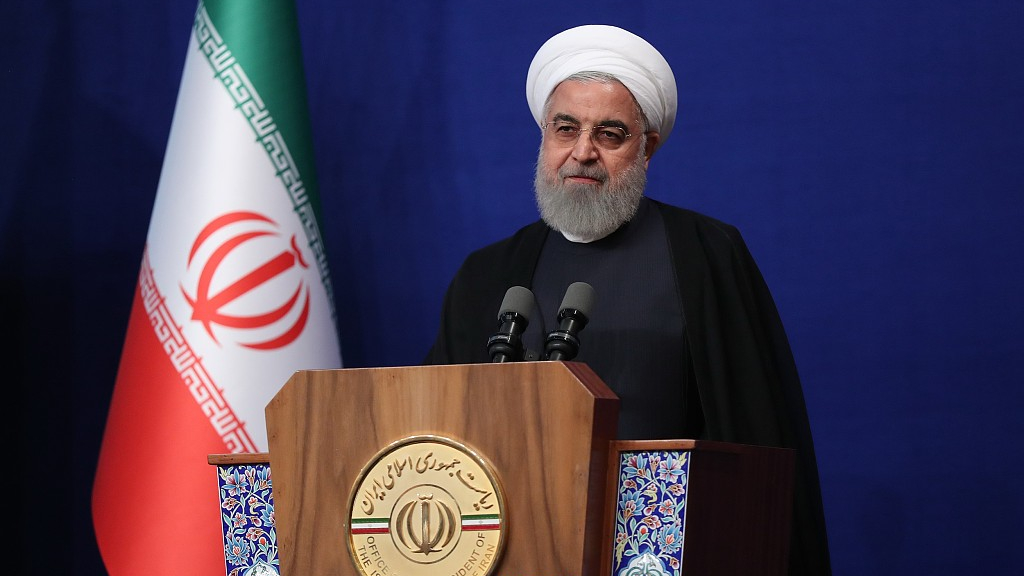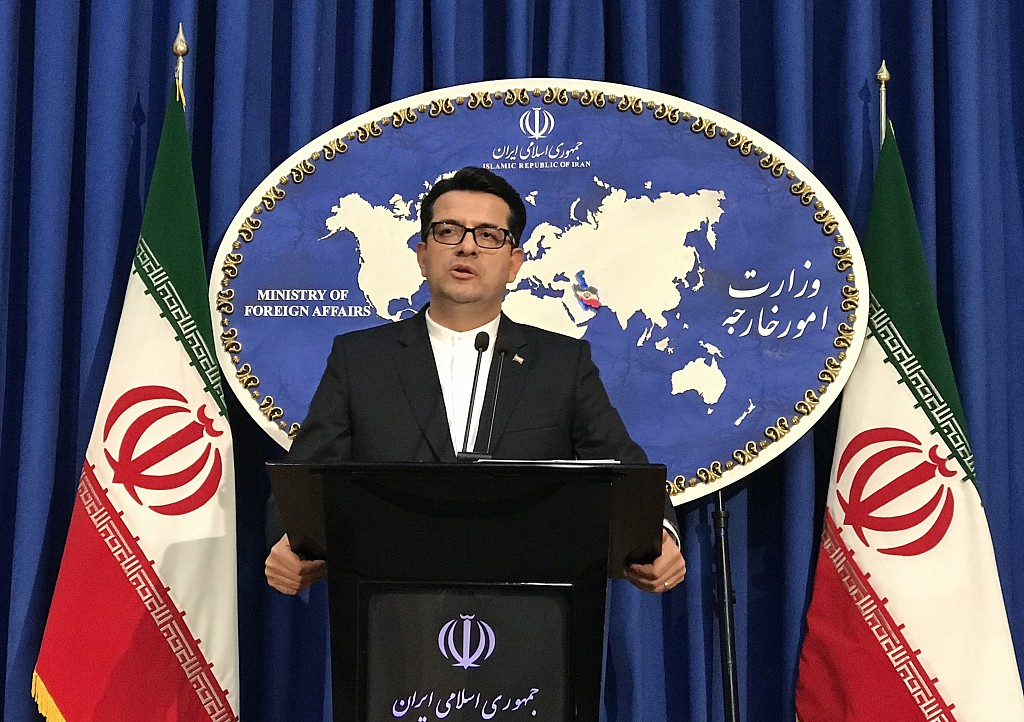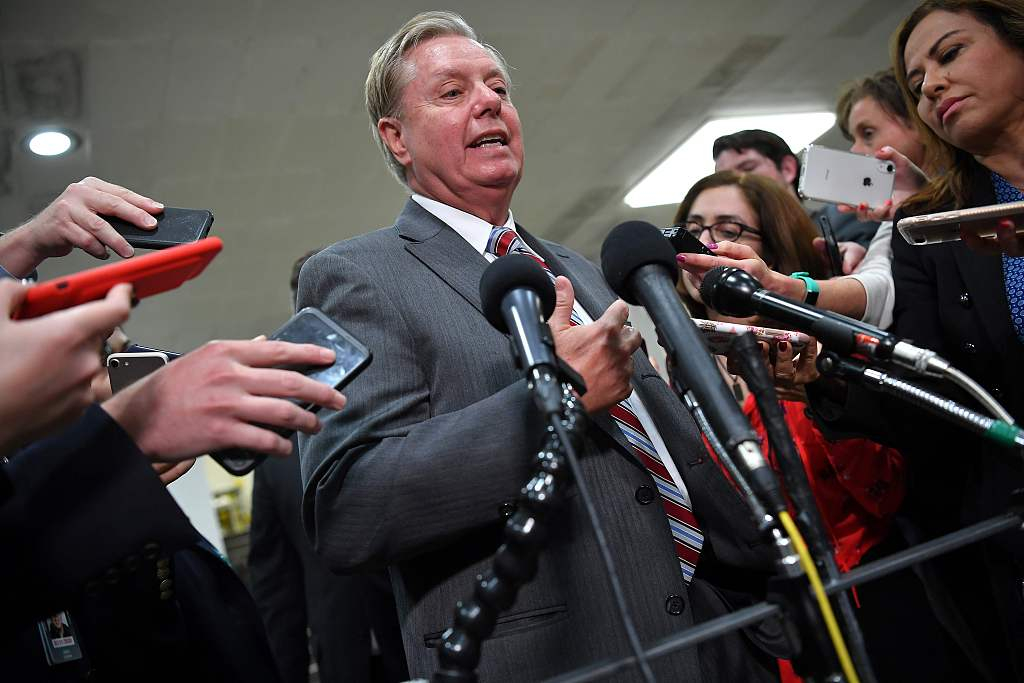

Editor's Note: Tom Fowdy is a British political and international relations analyst and a graduate of Durham and Oxford universities. He writes on topics pertaining to China, the DPRK, Britain, and the United States. The article reflects the author's opinion, and not necessarily the views of CGTN.
Yesterday came the shock news that two oil tankers within the Persian Gulf were subject to an attack in the form of an explosion, the ships being Norway's Front Affairs and Japan's Kokuka Courageous. Without any real details emerging of who was responsible for the attack or the motivations behind it, U.S. Secretary of State Mike Pompeo has immediately and indiscriminately blamed Iran for the incident, stating "intelligence" behind it. Inevitably, he did not offer any evidence of his position. Despite accusing Tehran, the attack came within the same week of Japanese Prime Minister Shinzo Abe's visit to meet with the country's supreme leader, a rare visit which has not taken place for nearly 40 years.
The fact that the White House has blamed Iran should not be a surprise to anyone. The move was very much predictable. Utilizing Islamophobic discourses, the executive believes that they can justify their campaign of pressure against the Persian country by blaming everything in the Middle East on Tehran without nuance or thought. In doing so, they purposefully ignore the historical irony that terrorism in the Middle East and on western soil has not stemmed from Tehran's Shi'ia nation-state ideology, but is a product of Wahabi-Salafism which has been aggressively promoted by Saudi Arabia. With this in hand, the U.S. repeatedly ignore how their repeated military interference within the region and uncritical support of Israel is, in fact, the real cause of extremism and instability within the Middle East. People must see through this surface.

Iran's Foreign Ministry spokesman Abbas Mousawi holds a press conference at Foreign Ministry building in Tehran, Iran, May 28, 2019. /VCG Photo
Iran is an easy country to demonize. It's a Shi'ia fundamentalist state which owing to the legacy of American support for the Pahlavi dynasty up until 1979, is fueled by resentment of Washington for its political interference. The Iranian revolution was as much nationalist as it was religious, with Shi'ism being seen as representative of the country's historical heritage and a means of preserving its identity amid the challenge of the West. As a result, the country chose a path of contention against the United States.
Of course, for the current administration this long history has made it incredibly easy to misrepresent in the light of anti-Muslim and terrorist discourses, conjuring images of a violent, hate-filled, irrational and aggressive nation which seeks to indiscriminately kill, bomb and destroy anything pertaining to the U.S. The long history of Western struggles against ISIL and Al-Qaeda and their atrocities on Western soil is what gives such ideas life and legitimacy, except for such imagery and association of Iran with it is not telling us the truth.
First of all, Iran and notorious terrorist groups and acts are intrinsically different. Groups such as Daesh are fueled by Wahabi-Salafist ideology, an estranged school of Sunni Islam which has been encouraged and promoted by Saudis. Iran does not belong to this strand of political-theology. Instead, it operates on Shi'ism, a branch of Islam which is historically irreconcilable with Sunnism on the matter of political leadership and further incorporates this ideology into the notion of a modern nation-state led by the Clerics who are embedded with the authority of the "Hidden Imam," a purported lineage descendant of Muhammad's cousin Ali.

U.S. Senator Lindsay Graham gives a statement after closed-door briefing on Iran in the auditorium of the Capitol Visitors Center in Washington, D.C., May 21, 2019. /VCG Photo
This means that not only is Iran theologically estranged from Salafist movements, but it also operates on the assumption of a nation, not a sub-state terrorist group like ISIL seeking to create a worldwide caliphate and kill everyone in their path as is stereotyped. This means that Tehran behaves on the provision of national interests like any other country. While it is waging proxy conflicts against rivals in Syria and Yemen, this is geopolitical and is not the full scale, indiscriminate and unreasoned slaughter as textbook terrorist groups do. It sees itself in effect in a regional standoff against the United States, who have sought to contain and oppress it. It is a national security dilemma for them.
Of course, Washington still isn't telling us the whole story. The real reason extremism and terrorism have been so abundant throughout the Middle East is not because of "Iran" or for that matter, not Islam in any organic form itself, but because the political and social conditions of that region are constantly destabilized and uprooted by a certain foreign actor who continues to military intervene, cause needless wars and chaos throughout that area of the world.
The constant U.S.-led militarism within the region and also its unrelenting support of all things Israel is the primary cause of instability, ideological upheaval and political uncertainty within the Middle East. The easy and cynical scapegoating of Iran is compelling and believable, but it is built upon a rotten foundation which amounts to not only a total incomprehension of Washington's impact in that region but an outright denial of history itself.
(If you want to contribute and have specific expertise, please contact us at opinions@cgtn.com.)

Copyright © 2018 CGTN. Beijing ICP prepared NO.16065310-3
Copyright © 2018 CGTN. Beijing ICP prepared NO.16065310-3